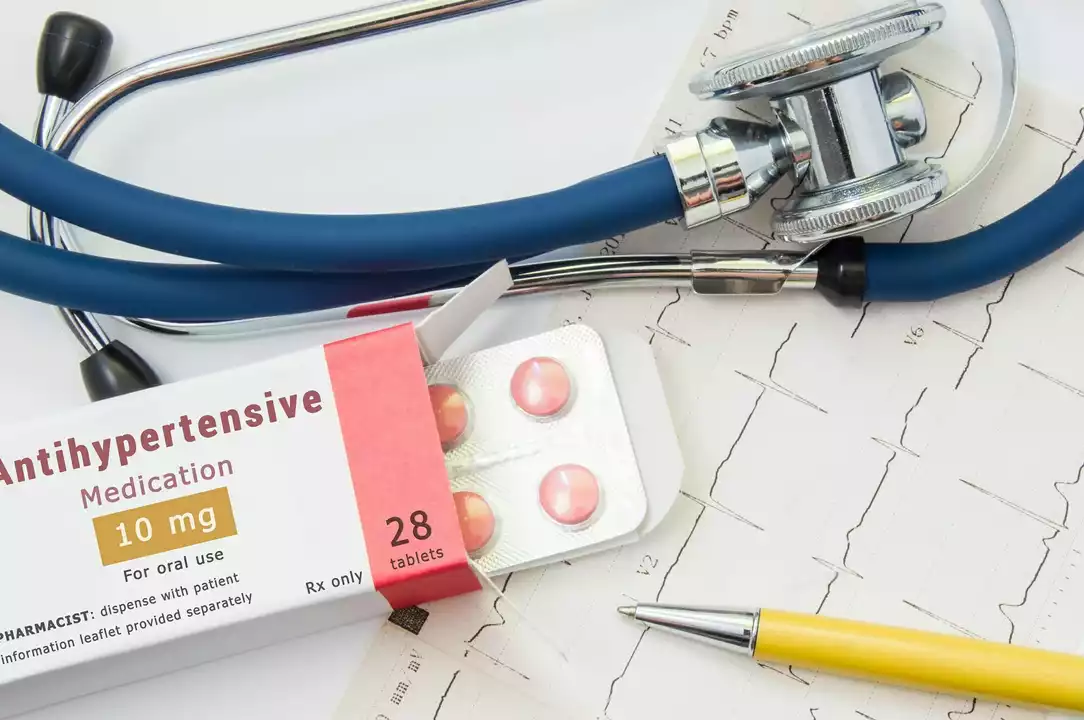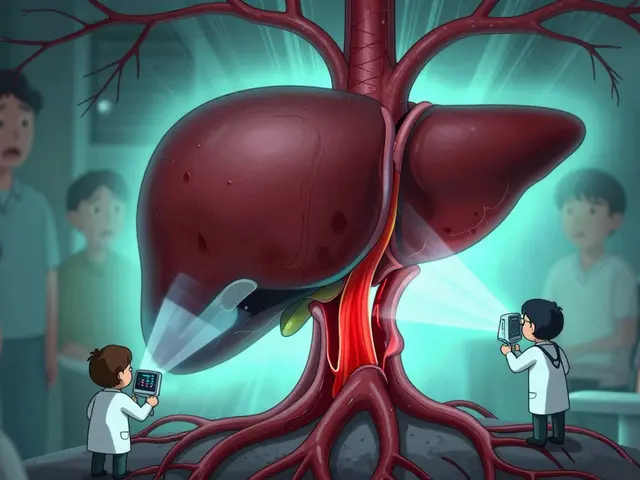
Introduction to Chlorthalidone
Chlorthalidone is a medication that belongs to a class of drugs called thiazide diuretics, or more simply, water pills. It is primarily prescribed to treat high blood pressure, which is a common health problem that affects millions of people worldwide. In this article, we will explore everything you need to know about Chlorthalidone, including its uses, side effects, and how it works. So, let's dive in and learn more about this important medication.
Understanding How Chlorthalidone Works
Chlorthalidone works by helping your kidneys remove excess water and salt from your body. This process helps to lower your blood pressure and reduce the strain on your heart. When your kidneys remove the excess water and salt, it helps your blood vessels to relax, which in turn lowers your blood pressure. Chlorthalidone is often prescribed alongside other medications to manage high blood pressure effectively. It's essential to understand how this medication works to ensure that you get the most benefit from its use and to avoid potential side effects.
Common Uses of Chlorthalidone
Chlorthalidone is mainly used to treat high blood pressure (hypertension). High blood pressure is a serious condition that can lead to severe health problems, such as heart disease, stroke, and kidney failure. By lowering your blood pressure, Chlorthalidone can help to reduce the risk of these potentially life-threatening complications.
Additionally, Chlorthalidone may also be prescribed to treat fluid retention (edema) caused by conditions such as heart failure, liver disease, or kidney disorders. Edema occurs when excess fluid accumulates in your body, causing swelling and discomfort. Chlorthalidone helps to eliminate this excess fluid, providing relief from the symptoms of edema.
How to Take Chlorthalidone
Chlorthalidone is usually taken once a day, either in the morning or evening. It is important to take the medication at the same time each day to maintain a consistent level of the drug in your system. You can take Chlorthalidone with or without food, but it is best to follow your doctor's instructions on how to take the medication. Additionally, it is crucial to drink plenty of water while taking Chlorthalidone to prevent dehydration.
It is essential to take Chlorthalidone exactly as prescribed by your doctor. Do not stop taking the medication suddenly or change the dose without consulting your healthcare provider. Stopping the medication abruptly can lead to a sudden increase in your blood pressure, which may cause serious health problems.
Potential Side Effects of Chlorthalidone
Like any medication, Chlorthalidone can cause side effects. Some common side effects include dizziness, lightheadedness, headache, and increased urination. These side effects are typically mild and may go away as your body adjusts to the medication. However, if these side effects persist or worsen, it is essential to consult your healthcare provider.
More serious side effects of Chlorthalidone may include dehydration, electrolyte imbalances, low blood pressure, kidney problems, and allergic reactions. If you experience any of these side effects, contact your healthcare provider immediately. It is crucial to be aware of the potential side effects so that you can take appropriate action if necessary.
Interactions with Other Medications
Chlorthalidone can interact with other medications, which may affect how the drug works or increase the risk of side effects. Some common medications that may interact with Chlorthalidone include lithium, digoxin, certain anti-diabetic medications, and other blood pressure medications. It is essential to inform your healthcare provider of all the medications, supplements, and herbal products you are taking to avoid potential interactions.
Additionally, Chlorthalidone may also interact with alcohol, which can further lower your blood pressure and increase the risk of side effects. It is advisable to limit or avoid alcohol consumption while taking Chlorthalidone.
Precautions to Take When Using Chlorthalidone
Before starting Chlorthalidone, it is essential to discuss your medical history with your healthcare provider. Be sure to inform them of any allergies, kidney problems, liver disease, diabetes, gout, or electrolyte imbalances. Additionally, if you are pregnant, planning to become pregnant, or breastfeeding, it is crucial to discuss the potential risks and benefits of Chlorthalidone with your healthcare provider.
While taking Chlorthalidone, it is essential to monitor your blood pressure regularly and attend all scheduled appointments with your healthcare provider. This will help to ensure that the medication is working effectively and allow for any necessary adjustments to your treatment plan.
Tips for Managing High Blood Pressure with Chlorthalidone
While Chlorthalidone can be an effective treatment for high blood pressure, it is essential to combine the medication with lifestyle changes to achieve the best results. Some tips for managing high blood pressure include eating a healthy diet, getting regular exercise, maintaining a healthy weight, limiting alcohol consumption, and reducing stress. By making these changes, you can help to improve your overall health and reduce the risk of complications related to high blood pressure.
Remember, it is crucial to take Chlorthalidone as prescribed and to follow your healthcare provider's recommendations for managing your high blood pressure. With the right treatment plan and lifestyle changes, you can take control of your blood pressure and live a healthier life.
Conclusion
In conclusion, Chlorthalidone is a valuable medication in the treatment of high blood pressure and edema. By understanding how the drug works, its potential side effects, and interactions with other medications, you can make informed decisions about your treatment plan. Always consult your healthcare provider before making any changes to your medication regimen and follow their guidance for managing your high blood pressure. With the right treatment and lifestyle changes, you can take control of your blood pressure and reduce the risk of serious health complications.
17 Comments
Write a comment
More Articles

Portal Vein Thrombosis: How Diagnosis and Anticoagulation Improve Outcomes
Portal vein thrombosis is a serious liver condition caused by blood clots in the portal vein. Early diagnosis with ultrasound and prompt anticoagulation dramatically improve outcomes, reducing complications and increasing chances of vein recanalization.


Jen Basay
June 12, 2023 AT 15:08Thanks for the thorough rundown! :) I was curious about how often labs need to be checked when starting chlorthalidone, especially potassium levels. Also, do you think lifestyle tweaks make a noticeable difference alongside the pill? Looking forward to any extra tips.